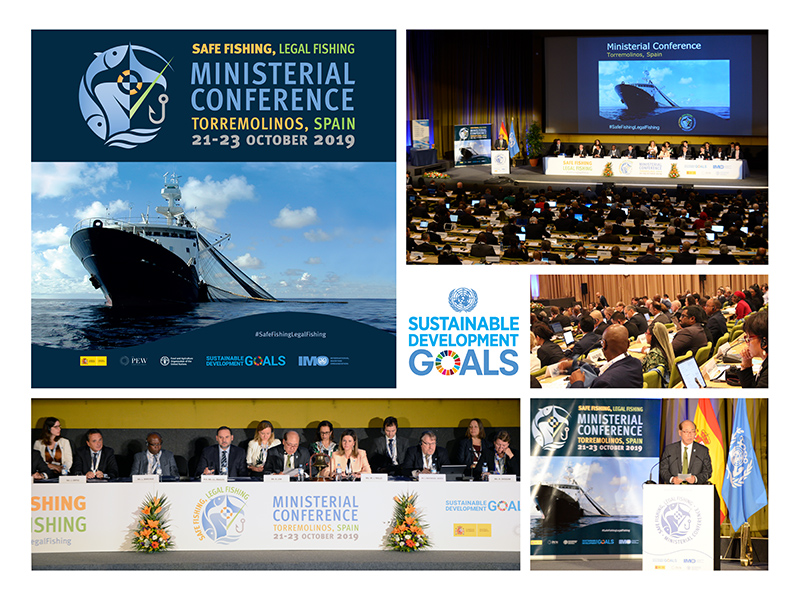The loss of life on fishing vessels remains unacceptably high – but the ratification and entry into force of the Cape Town Agreement, a key international treaty on fishing vessel safety, could have a significant positive impact, saving lives at sea. A Ministerial Conference (21-23 October) has opened in Torremolinos, Spain, to garner momentum towards entry into force of the Agreement. This will also help to combat illegal, unregulated and unreported (IUU) fishing.
Opening the Conference, IMO Secretary-General Kitack Lim recalled that the first international regime to address fishing vessel safety had been adopted in Torremolinos in 1977, with a follow up Protocol adopted in 1993, but had not entered into force. The Cape Town Agreement of 2012 will provide the updated mandatory regime for fishing vessel safety. “Back in 1977, in this very hall, the journey towards a mandatory international safety regime for fishing vessels began. After more than 42 years, IMO and its Member States have returned to Torremolinos to give the final push, to bring a binding international regulatory regime for fishing vessel into force,” Mr. Lim said. The high level of participation at the conference showed a strengthened commitment to bringing the Cape Town Agreement into force.
Later on Monday, States will be invited to sign the Torremolinos Declaration, a non-legally binding political instrument for States to publicly indicate their determination to ratify the Cape Town Agreement by the tenth anniversary of its adoption (11 October 2022). The Conference will close on Wednesday (23 October) with the adoption of Conference resolutions..
The Torremolinos Conference is co-hosted by IMO and the Government of Spain, with the kind support of the Food and Agriculture Organization of the United Nations (FAO) and The Pew Charitable Trusts. It is being attended by more than 500 participants from 148 delegations, including more than 30 Ministers. Read more here. The conference will be followed by a meeting (23-25 October) of the Joint FAO/ILO/IMO Working Group on IUU Fishing.
The 2012 Cape Town Agreement is an internationally-binding instrument. The Agreement includes mandatory international requirements for stability and associated seaworthiness, machinery and electrical installations, life-saving appliances, communications equipment and fire protection, as well as fishing vessel construction. The 2012 Cape Town Agreement is aimed at facilitating better control of fishing vessel safety by flag, port and coastal States.
Click for photos.
